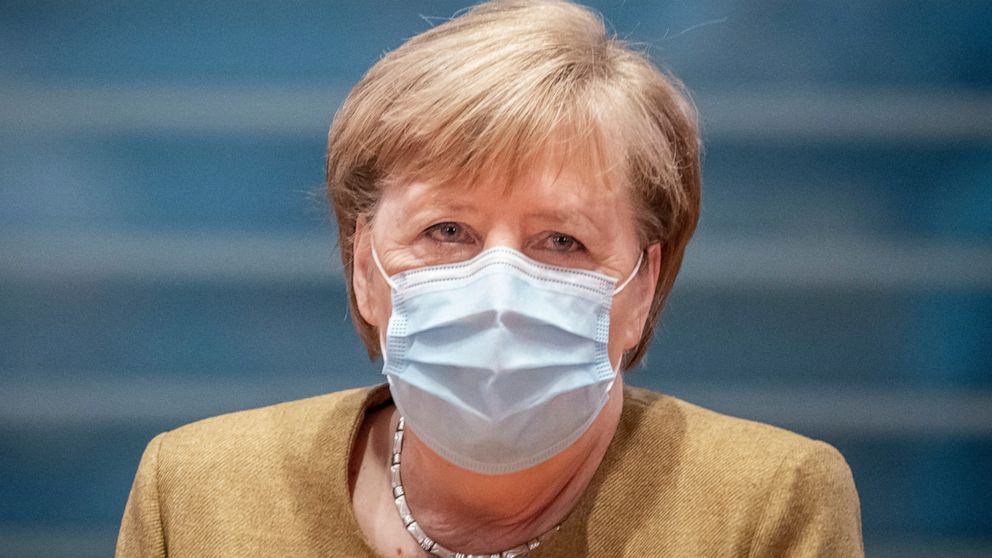Germany extends partial shutdown to curb virus spread
German Chancellor Angela Merkel and the country’s 16 state governors have agreed to extend a partial shutdown well into December in an effort to further reduce the rate of coronavirus infections ahead of the Christmas period
BERLIN — German Chancellor Angela Merkel and the country’s 16 state governors on Wednesday agreed to extend a partial shutdown well into December in an effort to further reduce the rate of COVID-19 infections ahead of the Christmas period.
Germany embarked on a so-called “wave-breaker” shutdown on Nov. 2, closing restaurants, bars, sports and leisure facilities but leaving schools, shops and hair salons open. It was initially slated to last four weeks.
Merkel said the measures will now be extended until at least Dec. 20, with a goal of pushing the number of new coronavirus cases in each region below 50 per 100,000 inhabitants per week.
“We have to continue to pursue this goal,” she told reporters in Berlin.
Merkel said that while existing measures have succeeded in halting an surge in new coronavirus infections, they have stabilized at a high level.
Germany’s disease control agency, the Robert Koch Institute, reported 18,633 new cases over the past 24 hours — compared with 17,561 a week earlier.
“We can’t be satisfied with this partial success,” she said, noting that health officials on Wednesday also reported 410 deaths linked to COVID-19, the highest single-day total yet.
“(This) reminds us in the saddest way that behind the statistics are human fates,” Merkel said.
During a seven-hour video call, federal and state officials also agreed on a number of new restrictions.
These include:
—Limiting private gatherings to five people from up to two households, not counting children under 14. Over the festive period that number will be increased to 10, to allow for small family gatherings.
—Traditional New Year’s Eve fireworks will be discouraged, and banned entirely in some popular streets and squares.
—Employers will be encouraged to let staff work from home Dec. 23 to Jan. 1.
—Masks will be required in front of stores, in parking lots and in most secondary schools.
—The number of customers allowed into larger stores will be reduced.
The government also plans around 17 billion euros ($20 billion) more in aid to compensate businesses hit by the shutdown, on top of 15 billion euros provided by federal authorities in November.
Germany, which has 83 million people, was credited with a relatively good performance in the first phase of the pandemic. It still has a lower death rate than several other European countries, and its current shutdown has been relatively mild.
Germany has reported a total of 961,320 virus cases since the pandemic began, including 14,771 deaths.
Merkel expressed hope that the arrival of the first vaccines in coming weeks would help turn the corner on the pandemic.
“A lot indicates that 2021 will bring us relief,” she said.
The country’s disease control agency released a new version of its contact tracing app Wednesday that includes reminders for people to share positive test results with people they were in close proximity to.
The app had been downloaded 22.8 million times by Friday. Its decentralized, privacy-focused design has been copied by several other European countries.
———
Follow AP’s pandemic coverage at http://apnews.com/VirusOutbreak and https://apnews.com/UnderstandingtheOutbreak
![]()


